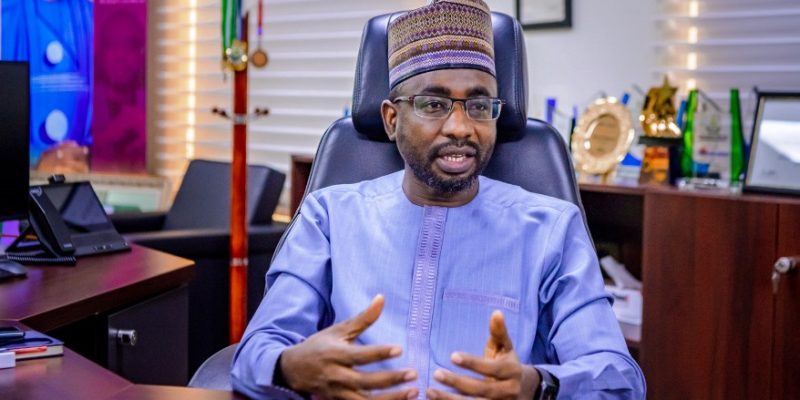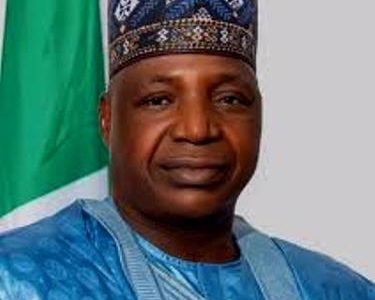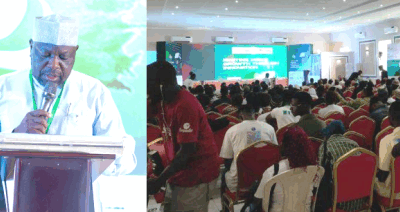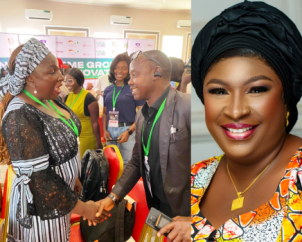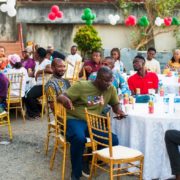When Kachifu Inuwa Abdullahi came to the scene three years ago to manage the affairs of the National Information Technology Development Agency (NITDA) as the new Director General/CEO, he had huge misgivings and expectations to contend with. His appointment was as disruptive as the industry he was hired to come manage. Three years on, Abdullahi appears to have manifested his headship on themes of disruptions, transformational leadership and stakeholders engagement. There has been a consolidation of the years of NITDA under Prof Isa Ali Ibrahim (Pantami); and an exploration of new frontiers in terms of IT development and regulation. Abdullahi shares his experience with IT Edge News, Olusegun Oruame in this eTerview that focuses on leadership and managing an agency for a sector that is perpetually in transition.
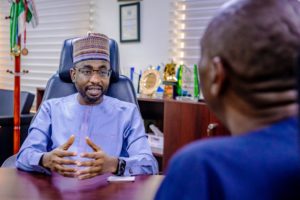
How will you sum up your three years as CEO/DG of NITDA considering that your appointment was unprecedented – what are the remarkable lessons in those 36 months that could be takeaways for young people in leadership positions?
I think it is the confidence that we have delivered beyond even expectations because we have achieved a lot in terms of transformation within NITDA. When I was appointed there were lots of expectations from the person that recommended me, the Honorable Minister of Communications and Digital Economy, the president that appointed a young person and the youths in the country as well as the elderly people. Everybody had their own expectation. Being the youngest at the time in the government among the CEOs and also how dynamic the sector is, there were a lot of expectations. So, at that time, if people congratulated me, I normally say “pray for me, don’t congratulate me, because there are a lot of expectations, wait until if I deliver the expectations then you can congratulate me.” so, with the support of my staff, the guidance and the support of the minister and also the president’s support for the sector in general, all have helped us to achieve a lot.
“Today, we have this big tech controlling and exercising unaccountable power over everyone and we think the technology is helping us increase democracy but actually it is eroding democracy.”
The same year in 2019, the presidents named and expanded the mandate of our ministry to cover digital economy and we have to recalibrate at the agency, because if you remember, the agency was established to implement National IT Policy. So now we have a new policy, the National Digital Economy Policy and Strategy (NDEPS), meaning we had to recalibrate, we had to reassess ourselves and we had to set target for ourselves. That’s when we crafted the Strategic Roadmap and Action Plan (SRAP). We did the assessment to establish ‘where we were’, and we then crafted our ‘where we want to be.’ Then based on that we identified the kind of capabilities we needed to have in place that will help to take us from where we are to where we want to be. Part of it needed a lot of transformation in house, within the agency, in terms of building the mindset, shaping the mindset and building the skillset in terms of orienting the people, because our people are our great resources, if the agency has a mandate to deliver something, it’s not the agency as a building that would do this but the staff within the agency. So, the staff needed to understand the mandate, and they needed to have the capacity to deliver.
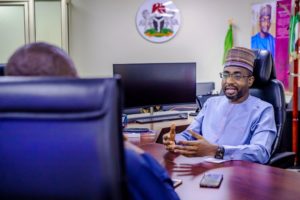
So, I develop a Playbook that I use mostly to navigate my ways. In my Playbook firstly, I create clarity in everything. We as staff must be clear about the mandate, what we want to achieve, the government’s expectation and stakeholders’ expectation. We linked what the government wants us to do with our corporate strategy. Then we created departmental strategy and job role for staff, and we mapped everything together. That has helped greatly. I make sure that before I give anybody any assignment; I make that assignment clear, letting him understand my expectation because it is easier for anybody to deliver any work when he has clarity of what is expected from him. Then, secondly, I find a way to unleash energy within the team because it is not about the DG, it is about the team. The team does the work because it is about talent; it is about the capacity of the staff. You can only unleash that energy if the staff takes the ownership of the work. So, we use different strategy to achieve that desired result.
RELATED: Technology will erode rather than improve democracy without government and regulations, says NITDA boss
We encourage collective leadership with individual accountability; and collective ambition of where we want to take the agency to. All these help to unleash that energy in addition to the packaged remuneration, reviewing our own renumeration to encourage the staff. Also, we created that kind of autonomy within the agency, the ability to allow people to work in their self-directed way. If I give you an assignment, I think you should go and think on the best way to deliver it not micromanaging you and telling you do this or don’t do that. Give that autonomy for people you’ll get the best out of them. And also, we give them the mastery and ability to build skills. Everybody wants to develop a skill; everybody wants to be the best and also have that sense of being part of something meaningful. Because whatever we achieve it is not about the DG, it is NITDA. NITDA achieves this, NITDA achieves that. And that is how you can institutionalize things. Then the third component of the Playbook is about building trust because trust revolves around everything we do. Without trust, I won’t sit down with you to grant this interview. Without trust my staff will not tell me what is happening in the agency. And if you don’t have trust, you have malicious disobedience. People doing things because they were asked to do, and they know that thing is not right, but they will do it because this is what my boss says I should do.
“Then the third component of the Playbook is about building trust because trust revolves around everything we do…. Without trust my staff will not tell me what is happening in the agency. And if you don’t have trust, you have malicious disobedience.”
Then fourthly, it’s about winning today. Everybody wants to be associated to success to celebrate your wins. So, we always try to do that. If people are part of that something meaningful happening around and about them and also, if they are praised for what they do, they will certainly want to do more. So, that’s what helped the agency to even come to the limelight to be among the top agencies of government when you talk about government in Nigeria. Also, that’s what has helped to build the trust with the ecosystem because we exist to serve the ecosystem. The last thing we do is sharpen our tomorrow. Don’t think because today you’re winning, tomorrow you would win. No! You need to think of what you need to do to win tomorrow, because what helps us win today might not help us succeed tomorrow. We have to shape our tomorrow, and we don’t want just to let things happen like serendipity. We want to engineer the serendipity; we want to engineer our success. We don’t want things to happen by coincidence, by mere chance. We want to design it; to be outcome of efforts, consequence of planned actions. So, this is what is helping us, building the trust about the ecosystem, delivering our expectations and that’s what always makes me happy when I see what we’ve achieved so far within these three years.
You represent a new level of leadership in the country and goes back to part of the decision of the Honourable Minister’s to be both futuristic and disruptive. What is leadership to you in the context of managing people in one of the most complex government institutions in the last three years?
I think personally there is nothing like a born leader or born anything. Anything you made, you made it in this world, whether it is leadership, money, or anything you can think of. I don’t believe there is someone that was born to be a leader but the environment, the people you relate with, the mentorship and so on that’s what shapes leadership and whatever you think of. For me I would say that my background and upbringing have a lot of influence on who I am. I was born and raised in a small community in Jigawa state, in my community there are two key values. In that community, everybody wants to stand out and get noticed because it is a community of enthusiastic artisans, people with hands-on skills to get the best carpenters, tailors, plumbers and electricians in my area. Also, my family core-values, my daddy brough me up to believe that in everything I do and wherever I find myself, I should try and be different and try to create value, so my family core values coupled with the community core values shaped and created who I am. So, I use these four things wherever I find myself, I try to stand out, get noticed, be different and lastly create value. Then in my career, the people I met have helped a lot in shaping who I am today. In terms of mentorship, my teachers, notably my mentor, the Honourable Minister of Communications and Digital Economy since my university days, he’s been part of the people that if I have a problem, I can go to them for guidance and mentorship. The minister has been a great mentor and that has helped a lot because with mentorship, there is someone that will tell you one word that will change your perspective. I will never forget the first time I met the minister in the university; I was keeping bad company and he called me, and he said, “you look decent why are you moving around with this people.” At that time, I was young and I was thinking this is freedom for me because I finished from a boarding school where I didn’t have freedom to do whatever I wanted and I had my parents right at my back and now in the university, I had freedom to do what I wanted. But he told me one thing: anything that you are going to do, first of all ask yourself is that the reason why God created you? Secondly, ask yourself is it the reason you are where you are? If the answer is no then don’t do it as it is a waste of time. Those words changed my perspective then and till now, I use them to judge before I make decisions. If the context does not meet the criteria, I find it difficult to make the decision.
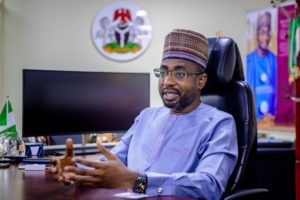
As an IT regulator and in the light of emerging technologies what is the future of NITDA?
The future is co-creating regulation for several digital spaces and enabling environment. About 20 years ago when we started this journey into the digital world, people were saying it is an ungoverned space without government. But now, it is beyond that. Technology is something that changes the way we live and the way we relate with each other and even our environment. Anything with this kind of monumental impact neither should not be left at the hands of few people to control it. The future is about regulating the digital space so that it will help us increase competition. If we look at the digital world, it is about dominance: the big companies dominate everything. If they see you, they either acquire you or crush and smash you, how can we enhance accountability? We are asking them to be transparent and accountable for what they do. The kind of data big tech companies have, there is no sovereign nation in this world that has that kind of data, and you know with that kind of information you can easily manipulate and control people. You can decide what they see, what they read, what you want them to believe.
“We encourage collective leadership with individual accountability; and collective ambition of where we want to take the agency to. All these help to unleash that energy.”
The third one is how can we use technology to reform governance, we are talking about digitalizing government services, we are talking about paperless government, so we need to have the regulatory instrument in place that will help us to achieve that. The fourth one is safeguarding privacy, how can we use technology to safe guard our privacy? How do we share data? What do you do with the information you collect from individuals and so on? The last one is about protecting democracy, because today the CEO of these big techs are more powerful than sovereign nations and democracy, if you look at the republican ideology (not the US Republican Party) but republican idea traced back to the Greek, it means opposing a situation where a group of people can control and exercise unaccountable power over others. Today, we have this big tech controlling and exercising unaccountable power over everyone and we think the technology is helping us increase democracy but actually it is eroding democracy. Looking at what happened in 2016 before the US election and other things; society is concerned about what kind of laws we need to have in place to make sure technology is not abused or used to dominate others. That is the focus of NITDA as an agency.

